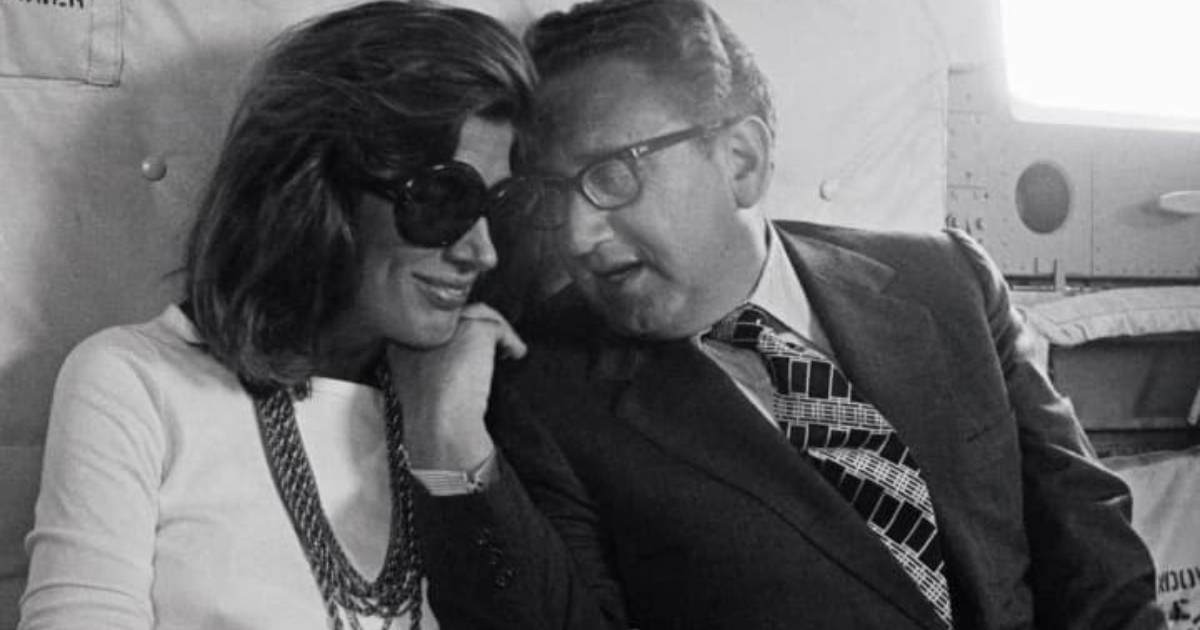Ann Fleischer is best known as the first wife of Henry Kissinger, one of the most prominent diplomats in American history. Born on November 6, 1925, in Fürth, Germany, Ann’s life story is deeply intertwined with the tumultuous history of the 20th century. Through migration, war, and the complexities of political life, her journey offers insights that extend far beyond her marriage to Henry Kissinger.
This blog will delve into Ann Fleischer’s early life, her relationship with Henry Kissinger, and her legacy as an influential yet often overlooked figure.
Quick Facts About Ann Fleischer
| Fact | Details |
|---|---|
| Full Name | Ann Fleischer |
| Date of Birth | November 6, 1925 |
| Birthplace | Fürth, Germany |
| Nationality | German-American |
| Notable Relation | First wife of Henry Kissinger |
| Children | Elizabeth Kissinger, David Kissinger |
| Current Status | Lives privately, away from public attention |
Early Life and Background
A Turbulent Beginning
Ann Fleischer was born into a Jewish family in Fürth, a small German town, during a time when Europe was on the brink of monumental change. Her early life was characterized by the rise of Nazism, which profoundly affected her community. According to historian David S. Wyman, many Jewish families, including Ann’s, faced increasing hostility and persecution leading up to the Second World War (Wyman, 1993).
Emigration to the United States
In 1938, with the situation in Germany becoming increasingly dire, Ann’s family made the brave decision to emigrate to the United States. This move was not only a quest for safety but also a significant turning point in her life. Adapting to a new culture and language, she demonstrated remarkable resilience and strength—a theme that would define her later years.
Shaping a New Future
Once in the U.S., Ann’s early experiences shaped her into a person of quiet strength and adaptability. Little is publicly known about her early education, but her life during this period instilled in her a sense of purpose and independence.
Meeting Henry Kissinger
Shared Heritage
Ann Fleischer met Henry Kissinger shortly after World War II. Both were young immigrants navigating their lives in America, their shared roots in Fürth creating an immediate bond. As they forged their paths, they found comfort in their mutual understanding of loss and displacement. Kissinger was studying at Harvard University, where he was laying the groundwork for his future career in diplomacy.
The Connection
Their initial connection blossomed into a deeper relationship built on shared values and aspirations. Ann complemented Henry during a crucial time in his life, providing emotional support and balance as he began to develop the theories that would later define his approach to international relations.
Quote: “Behind every great man, there’s a woman rolling her eyes.” – Jim Carrey (often attributed to the dynamic of influential partnerships).
The Importance of Emotional Support
Their relationship was not just personal; it was also pivotal for Henry’s academic and professional growth. Ann’s ability to provide emotional stability allowed him to focus on his studies and political ideologies, which would eventually shape U.S. foreign policy.
Marriage and Family Life
Beginning a New Chapter
On February 6, 1949, Ann and Henry Kissinger married, marking the beginning of a 15-year union filled with both triumphs and challenges. Their marriage represented a partnership that was both collaborative and supportive. As Henry advanced in his career, Ann took on the role of a devoted partner and mother, often managing the family dynamics amidst Henry’s rising prominence.
Family Life and Responsibilities
The couple welcomed two children, Elizabeth and David, expanding their family while Henry completed his doctorate and began teaching at Harvard. Ann played a crucial role in creating a stable home environment, allowing Henry to thrive in his professional capacity.
Key Aspects of Their Family Life
- Shared Responsibilities: Both partners aimed to balance family obligations with career ambitions.
- Supportive Partner: Ann maintained a home life that provided Henry with the grounding he needed as he became increasingly involved in U.S. politics.
- Focus on Upbringing: Ann devoted significant time to raising their children, instilling values of resilience and integrity.
Navigating Public Life
Despite the pressures that came with Henry’s growing prominence, Ann remained largely out of the public eye. Her choice to keep a low profile reflects her character and desire to shield her family from the political spotlight. This decision is often viewed as a demonstration of her strength and independence.
Divorce and Life After Separation
Factors Leading to Divorce
In 1964, after 15 years of marriage, Ann Fleischer and Henry Kissinger divorced. The separation coincided with Henry’s ascending career, where he became the National Security Advisor and later Secretary of State. Their split marked a significant turning point in both their lives.
Transition into Privacy
Post-divorce, Ann stepped even further out of the spotlight. While Henry’s career continued to flourish, Ann’s choice to live privately offered her the peace she sought. She did not remarry, dedicating her life primarily to her children.
Resilience Post-Divorce
Despite the changes, Ann maintained her dignity. She focused on raising her children and finding fulfillment outside the public sphere. Those who knew her often describe her as a thoughtful and self-contained person, embodying grace even amidst personal upheaval.
Relationship with Henry Kissinger and Shared Legacy
Mutual Influence and Growth
Ann Fleischer’s relationship with Henry Kissinger was foundational in shaping both their lives. Although their marriage ended, the impact Ann had during Henry’s formative years cannot be understated. She played a role in influencing his early policy decisions and perspectives.
- Domestic Support: Ann’s stability during Henry’s transition from academia to a political powerhouse laid the groundwork for his ambitious career.
- Historical Intersection: Their shared experiences as Jewish immigrants enriched their relationship, providing a context for understanding loss and resilience in the face of adversity.
Lasting Impact
Though Ann’s influence on Henry’s later achievements in diplomacy is less publicly acknowledged, it remains a significant part of their shared legacy. Her quiet support provided a backdrop against which Henry could pursue his ambitious goals, illustrating that influence does not always need to be loud to be significant.
Personal Qualities and Private Strength
Resilience and Independence
Ann Fleischer is remembered for her remarkable qualities that transcend her role as Henry Kissinger’s wife. Her character was characterized by:
- Quiet Dignity: Ann valued personal integrity and maintained her elegance even in the face of adversity.
- Inner Strength: Her decision to stay out of the spotlight reflected a deep-seated determination to live life on her own terms.
A Woman of Substance
In an era when political spouses were often thrust into the limelight, Ann’s choice to lead a relatively private life speaks volumes about her character. She set a powerful example of how one can wield influence without seeking fame.
A Balanced Perspective
Her life serves as a reminder that significant contributions often come from those who choose to remain behind the scenes. Ann’s story emphasizes the importance of understated strength and the impact of personal choices on public narratives.
Reflection and Legacy
A Quiet Yet Enduring Story
Ann Fleischer’s journey from a war-torn Germany to a life intertwined with a global statesman showcases the resilience that defines countless individuals throughout history. Her legacy is a testament to the often-overlooked stories of those who significantly influence major historical figures without seeking the spotlight themselves.
Cultural Significance
Ann’s life reflects the broader experiences of women during significant political upheavals, highlighting the quiet sacrifices made behind the scenes. Her story encourages readers to recognize the often-unseen efforts of individuals who support great leaders.
Lessons in Endurance
Ann’s journey also offers valuable lessons in endurance and strength. It serves as a powerful reminder that personal influence can leave profound marks on history, even when it occurs away from the public eye.
FAQs About Ann Fleischer
Is Ann Fleischer married today?
No, Ann Fleischer was married to Henry Kissinger from 1949 to 1964 and has not remarried since their divorce.
Is Ann Fleischer on social media?
Yes, an Instagram account named Ann Fleischer (@annersinc) exists, but it’s not confirmed whether it belongs to Henry Kissinger’s former wife.
Was Henry Kissinger German?
Yes. Henry Kissinger was born on May 27, 1923, in Fürth, Germany, and later became a naturalized U.S. citizen after emigrating with his family in 1938.
Conclusion
Ann Fleischer’s life story is a poignant narrative of resilience, dignity, and quiet strength. While often overshadowed by her husband’s accomplishments, her contributions to his early life and career are invaluable. Through her journey, we gain insight into the complexities of personal sacrifice and enduring support in the pursuit of success. Ann’s legacy continues to remind us that significant influences often come from places we least expect.
Her narrative is not just a chapter in Henry Kissinger’s biography but a significant story in its own right—an inspiring tale that resonates with anyone who understands the power of supporting roles in history.

